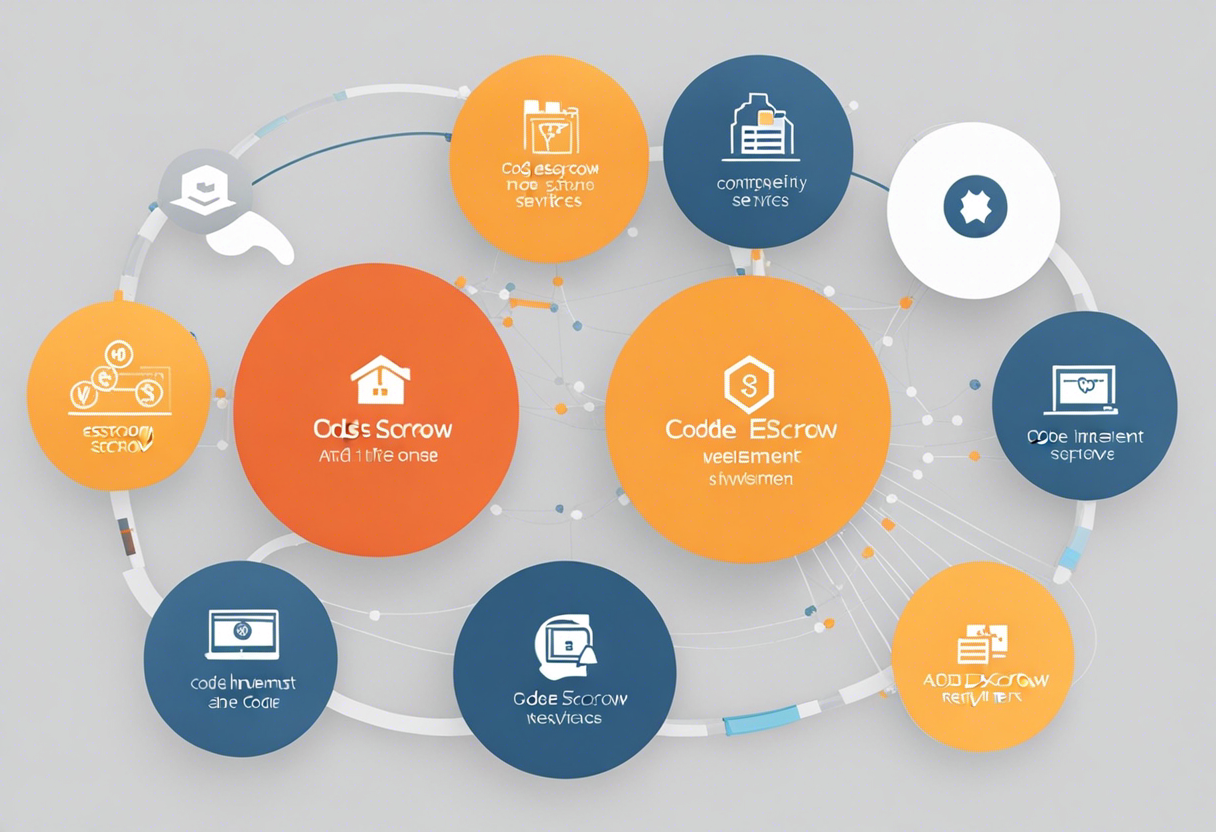Top 5 Essentials in Navigating the Code Escrow Landscape
Understanding the foundational elements of code escrow is key to adeptly navigating its landscape. An escrow is a legal concept involving a third party, who temporarily holds an asset or document, commonly utilized in property transactions. This principle applies to software development, where thereby code escrow involves depositing the source code of software with a third-part escrow agent. The purpose of such an arrangement is primarily to secure the continuity of critical applications in cases where the initial vendor is unable to maintain and update the software.
In the event of a vendor going out of business or otherwise failing to meet contractual obligations, the source code is released by the escrow agent to the licensee. Code escrow agreements are especially beneficial for users of proprietary, customized or specialized software—applications crucial to business processes but whose code is not generally available.
Structuring a Code Escrow Agreement

Upon grasping the basics, the next step is to understand the structuring of a code escrow agreement, which dictates how the relationship between the licensee (user), licenser (software vendor), and the escrow agent will function. In setting up an agreement, it's vital to have clearly defined release conditions. These conditions are specific situations that would trigger the release of the source code to the licensee, such as the software vendor filing for bankruptcy or the failure to provide necessary maintenance and support. Conducting due diligence on the escrow agent is equally important; this entity, entrusted with managing the source code, must be reputable and reliable.
Code Verification

A critical aspect of code escrows is verifying the deposited source code. Regardless of how comprehensive an escrow agreement might be, it's of little value if the deposited source code is incomplete or unworkable. Many code escrow agents offer verification services to assess the accuracy, completeness, and quality of the deposited code. Ideal software escrow agents will offer optimal levels of verification to appropriately match the security and operational needs of the licensee.
Code Escrow and SaaS

As more businesses are turning to SaaS (Software as a Service) solutions, understanding the role of code escrow in this domain is essential. In a SaaS context, the software source code is just one part of the equation. Other elements, including user data and the environment needed to correctly run the software (servers, databases), also need consideration. A well-defined escrow agreement should address these components, ensuring the licensee can successfully restore the service if required.
Costs Involved in Code Escrow

The investment in code escrow services can vary, largely contingent on the complexity of the software, the level of verification needed, and the frequency of updates. Additional factors may include the reputation of escrow agency and specific contractual requirements set by the licensee. Knowledge of these cost dynamics aids in the smooth negotiation of contract terms and helps set appropriate budgeting expectations.
Code Escrow Alternatives

While code escrow is a standard practice in software licensing agreements, it's also useful to consider alternatives. Open-source software significantly reduces the need for escrow as the source code is already freely available. Software insurance is another alternative where third-party companies offer policies to protect against the eventuality of a software vendor not being able to support and maintain their product.







